
Alfredo James Pacino is an American actor. Considered one of the greatest and most influential actors of the 20th century, Pacino has received numerous accolades including an Academy Award, two Tony Awards, and two Primetime Emmy Awards, achieving the Triple Crown of Acting. He has also received four Golden Globe Awards, a BAFTA, two Screen Actors Guild Awards, and was honored with the Cecil B. DeMille Award in 2001, the AFI Life Achievement Award in 2007, the National Medal of Arts in 2011, and the Kennedy Center Honors in 2016.
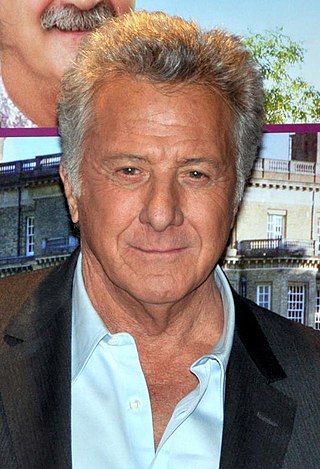
Dustin Lee Hoffman is an American actor and filmmaker. As one of the key actors in the formation of New Hollywood, Hoffman is known for his versatile portrayals of antiheroes and emotionally vulnerable characters. He is the recipient of numerous accolades, including two Academy Awards, four BAFTA Awards, five Golden Globe Awards, and two Primetime Emmy Awards. Hoffman has received numerous honors, including the Cecil B. DeMille Award in 1997, the AFI Life Achievement Award in 1999, and the Kennedy Center Honors Award in 2012. Actor Robert De Niro has described him as "an actor with the everyman's face who embodied the heartbreakingly human".

Network is a 1976 American satirical black comedy-drama film directed by Sidney Lumet and written by Paddy Chayefsky. It is about a fictional television network and its struggle with poor ratings. The film stars Faye Dunaway, William Holden, Peter Finch, Robert Duvall, Wesley Addy, Ned Beatty, and Beatrice Straight.

Robert Selden Duvall is an American actor and filmmaker. With a career spanning seven decades, he is the recipient of an Academy Award, four Golden Globe Awards, a BAFTA Award, two Primetime Emmy Awards, and a Screen Actors Guild Award.
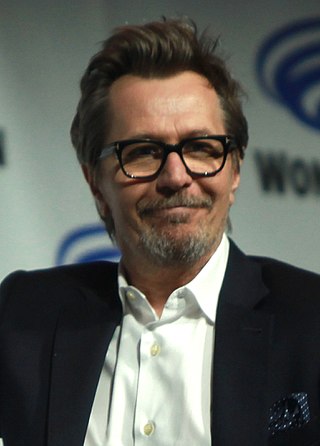
Gary Leonard Oldman is an English actor and filmmaker. Known for his versatility and intense acting style, he has received various accolades, including an Academy Award, a Golden Globe Award, and three British Academy Film Awards. His films have grossed over $11 billion worldwide, making him one of the highest-grossing actors of all time.

A character actor is an actor known for playing unusual, eccentric or interesting characters in supporting roles, rather than leading ones. The term is somewhat abstract and open to interpretation. While all actors play "characters", the term character actor is often applied to an actor who frequently plays a distinctive and important supporting role. In another sense, a character actor may also be one who specializes in minor roles.
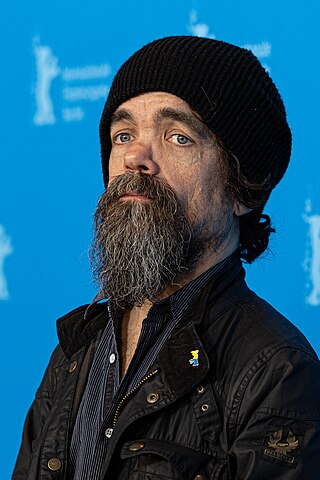
Peter Hayden Dinklage is an American actor. For portraying Tyrion Lannister on the HBO television series Game of Thrones (2011–2019), he won the Primetime Emmy Award for Outstanding Supporting Actor in a Drama Series a record four times. He also received a Golden Globe Award in 2011 and a Screen Actors Guild Award in 2020 for the role. Dinklage has a common form of dwarfism known as achondroplasia and stands 4 ft 5 in (1.35 m) tall. He has used his celebrity status to raise social awareness of dwarfism.
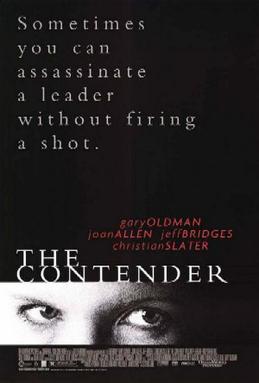
The Contender is a 2000 American political drama film written and directed by Rod Lurie. It stars Gary Oldman, Joan Allen, Jeff Bridges and Christian Slater. The film focuses on a fictional United States President and the events surrounding his appointment of a new Vice President (Allen).
In film, television, and theatre, typecasting is the process by which a particular actor becomes strongly identified with a specific character, one or more particular roles, or characters having the same traits or coming from the same social or ethnic groups. There have been instances in which an actor has been so strongly identified with a role as to make it difficult for them to find work playing other characters.

John Holland Cazale was an American actor. He appeared in five films over seven years: The Godfather (1972), The Conversation (1974), The Godfather Part II (1974), Dog Day Afternoon (1975), and The Deer Hunter (1978). All of them nominated for an Oscar. Cazale started as a theater actor in New York City, ranging from regional, to off-Broadway, to Broadway acting alongside Al Pacino, Meryl Streep, and Sam Waterston. Cazale soon became one of Hollywood's premier character actors, starting with his role as the doomed, weak-minded Fredo Corleone opposite longtime friend Al Pacino in Francis Ford Coppola's film The Godfather and its 1974 sequel, as well as Sidney Lumet's Dog Day Afternoon. In 1977, Cazale was diagnosed with lung cancer, but he chose to complete his role in The Deer Hunter. He died shortly after, in New York City on March 13, 1978.
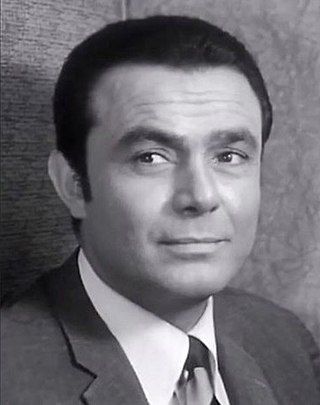
A leading actor, leading actress, or leading man or lady or simply lead, plays the role of the protagonist of a film, television show or play. The word lead may also refer to the largest role in the piece, and leading actor may refer to a person who typically plays such parts or an actor with a respected body of work. Some actors are typecast as leads, but most play the lead in some performances and supporting or character roles in others.

Karel Roden is a Czech actor, popularly known for his roles in Hellboy and The Bourne Supremacy, and his voice work in Grand Theft Auto IV.

Billing is a performing arts term used in referring to the order and other aspects of how credits are presented for plays, films, television, or other creative works. Information given in billing usually consists of the companies, actors, directors, producers, and other crew members.

Norman Stansfield is a fictional character and the primary antagonist of Luc Besson's 1994 film Léon: The Professional. Portrayed by Gary Oldman, the corrupt and mentally unhinged Drug Enforcement Administration (DEA) agent has been named as one of cinema's greatest villains. In recognition of its influence, MSN Movies described the Stansfield character as "the role that launched a thousand villains".

The Scarlet Letter is a 1995 American romantic historical drama film directed by Roland Joffé. Adapted from Nathaniel Hawthorne's 1850 novel of the same name, it stars Demi Moore, Gary Oldman, and Robert Duvall. The film met with overwhelmingly negative reviews. It was nominated for seven Golden Raspberry Awards, winning "Worst Remake or Sequel", and has garnered a legacy as one of the worst films ever made.

The Screen Actors Guild Award for Outstanding Performance by a Male Actor in a Television Movie or Limited Series is an award given by the Screen Actors Guild to honor the finest acting achievements in Miniseries or Television Movie.

Wrestling Ernest Hemingway is a 1993 American romantic drama film written by Steve Conrad and directed by Randa Haines, starring Richard Harris, Robert Duvall, Sandra Bullock, Shirley MacLaine, and Piper Laurie. The film is about two elderly men in Florida who form a friendship and the romantic relationships they have with the women in their respective lives. Wrestling Ernest Hemingway garnered mixed reviews from critics, praising the performances but criticized the overly melodramatic and sentimental direction of the plot. It was also a box-office bomb, grossing $278,720 against a $20 million budget.

English actor and filmmaker Gary Oldman made his film debut in the 1982 British ensemble drama Remembrance. He rose to prominence in British film with his portrayals of Sid Vicious in Sid and Nancy (1986), Joe Orton in Prick Up Your Ears (1987) and Rosencrantz in Rosencrantz & Guildenstern Are Dead (1990), while also gaining attention as the leader of a gang of football hooligans in the made-for-television drama film The Firm (1989). Regarded as a member of the "Brit Pack", he is also known for portraying a New York gangster in the American neo-noir crime film State of Grace (1990), Lee Harvey Oswald in JFK (1991) and Count Dracula in Bram Stoker's Dracula (1992).

Jeremy Strong is an American actor. His accolades include a Primetime Emmy Award and a Golden Globe Award, which he won for his breakout role of Kendall Roy in the HBO drama series Succession (2018–2023). In 2022, he was featured on Time's list of the 100 most influential people in the world.

The Joker is a fictional character in the DC Extended Universe (DCEU) multimedia franchise, primarily portrayed by Jared Leto. Based on the DC Comics supervillain of the same name, he was first adapted by writer-director David Ayer and executive producer Zack Snyder for Suicide Squad (2016), and returning with a drastic redesign in Zack Snyder's Justice League (2021). As in the comics, the Joker is depicted as a psychopathic master criminal in Gotham City, the archenemy of the superhero Batman, and the on-again off-again lover of Harley Quinn.



















